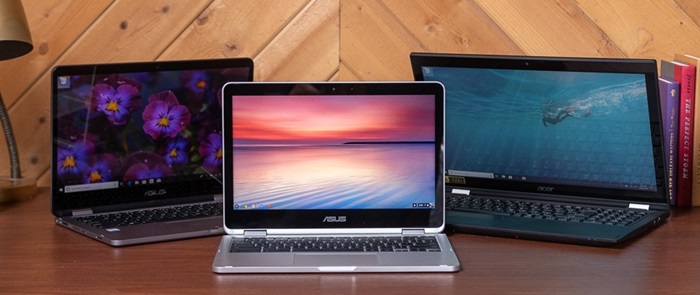The Poorer Cousin of Notebooks
However, some say that netbooks are the wave of the future, being small, light and easy to carry
An imaginary clueless consumer who has only recently realised that a laptop and a notebook are one and the same thing is in for more bewilderment as a result of the introduction of netbooks.
Understanding netbooks is very simple. Think of them as the wee notebooks. They are super tiny and cute. However, that does not mean that netbooks are like every other laptop out there, just smaller. Netbooks also are cheaper than most of the regular notebooks, otherwise known as laptops. And as usual, lower price tags translate into poorer performance.

What exactly is the difference between the venerable notebooks and the nouveau-arrive netbooks?
First, let’s consider the monitor. While a 15-inch has become a standard for regular notebooks, netbooks are likely to have a screen measuring up to 10 inches from corner to corner.
Next on the list is the storage. Most netbooks have very small storage space: as small as 8GB. In comparison, notebooks with 160GB of storage are not a rarity today. Some netbooks come with Solid State Drives (SSDs) instead of Hard Disk Drives. SSD can not store much data, but, on the up side, they have no moving parts and are thus less prone to damage due to dropping or banging the device as it is being carried around.
Netbook batteries are usually smaller and often can not last longer than two hours. An extended battery will provide about four hours – but it will also add to the weight of the device, which is meant to be ultra-light. As for notebooks, seven to eight hours of battery life is becoming a standard.
Nearly all of the netbooks on the market come without a CD or DVD drive. Users may opt for an external CD or DVD drive, but that adds to both the cost and the weight of the device.
Netbooks also have relatively slow processors.
Netbooks typically run cheaper versions of Microsoft operating system or on one of the Linux distributions. Resource-demanding operating systems like Vista are not suitable for them.
And in the end – the keyboard on a netbook is noticeably smaller. So small that some users manage to do any work on their netbooks only by attaching a real-size keyboard to it.
In short, netbooks are designed for more basic tasks. If you are looking for a portable computer to take along with you on your travels, to check your e-mail, surf the Internet, listen to some music (but not too much), then a netbook is for you. If you are more into image editing, multimedia authoring or gaming, then a notebook is a better choice.
After all, these low-cost, small-form-factor machines first appeared in 2007 and were originally aimed at emerging markets. Asus started it with their EEE range, and soon many big-name brands followed suit by releasing some sort of budget mobile computing machine. Netbooks sales have skyrocketed in the second half of 2008, with consumers in the U.S.A., Europe, and Japan snapping them up. Some say that, apart from a shortcoming or two, netbooks are the wave of the future, being small, light and easy to carry. Of course, being cheap helps too, especially in these times of economic downturn.